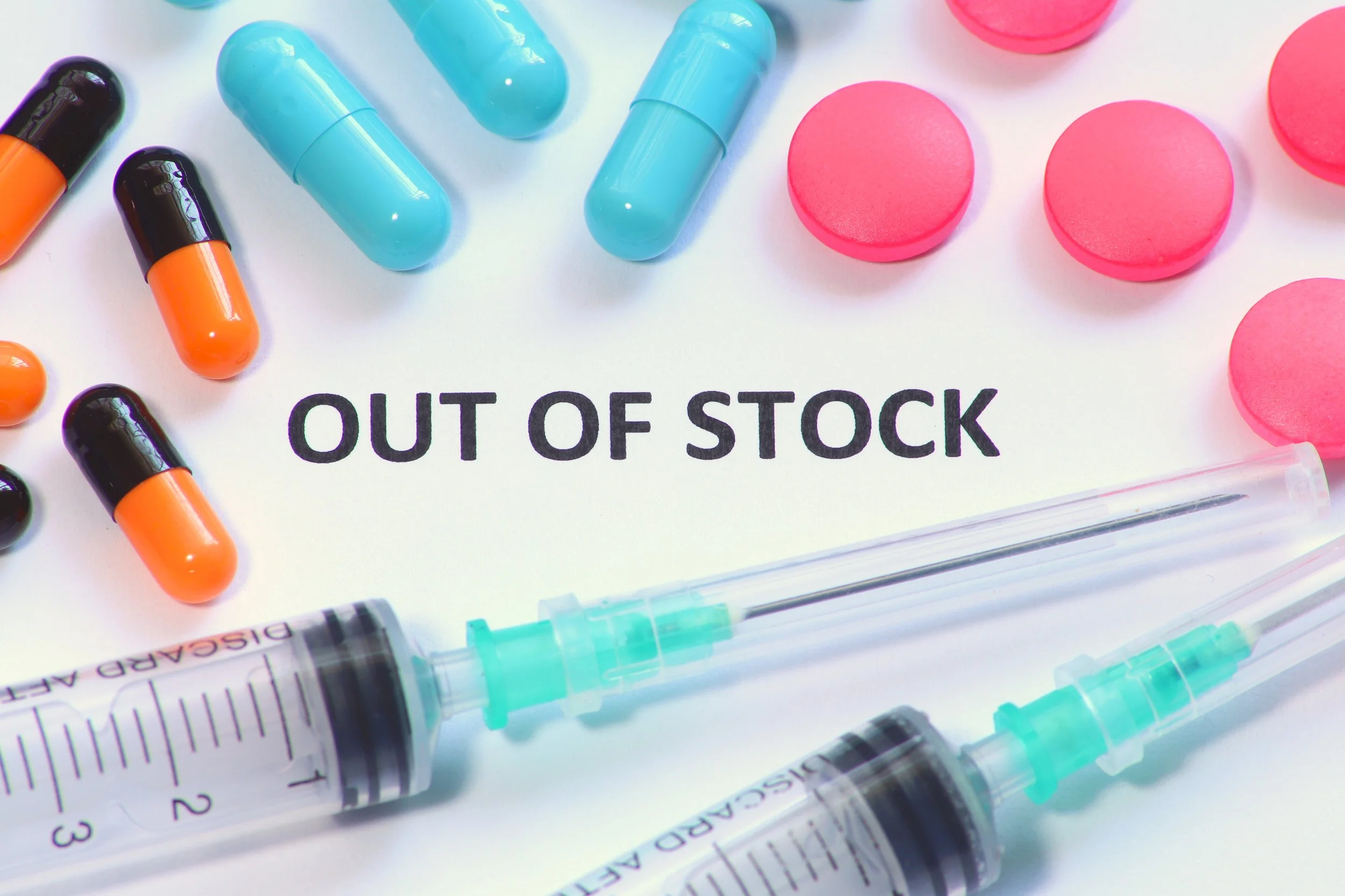There are a lot of elements to a care regimen – people, insurance companies, research, lifestyle habits, chemical intervention. Most of these vary in how much weight they have in the overall treatment scheme, depending on what a pain in the butt they are at any given time, and what your condition is doing at the moment. But there is one – just one – that is terrifying to deal without. That would be the medication.
Of course, chemical treatment is not perfect. Sometimes it is the best we can hope for stabilization. Sometimes it only treats symptoms because there is no treatment for the actual condition. Sometimes it causes side effects that are a bigger nuisance than the actual condition. Sometimes the prescribed medication is more expensive than you can afford.
All of that assumes that, all things being equal, you can actually get the medication.
I have dealt with medication shortages (not to mention medical devices and other equipment) on and off over the last few decades, especially as the number of medications I take increases.
With a couple of exceptions (ahem, diabetes), most of what I take is older, established, and generic. This often makes them the cheapest option, the ones any pharmacy has just lying around because everyone uses them.
In the last six months though, something has changed. I have dealt with shortages of fluoxetine (Prozac), naltrexone (weight loss drug), cyclopentolate (eye drops I needed for my cataract surgeries), and the worst of all, insulin.
I found out the insulin part by accident when I called my pharmacy. They told me they could only do a partial fill, and that they – one of the largest pharmacies in the country – had been robbing insulin Peter to pay insulin Paul since last October.
I confess. This statement from the unsuspecting rep scared the living you-know-what out of me. I can’t disconnect myself from insulin for five minutes without severe consequences. So, the idea of just, you know, unexpectedly coming up short by a few vials every once in a while, does nothing good for my stress levels, and therefore my conditions, especially dealing with my depression.
Going without insulin or rationing it could literally kill me.
For the others, I’m past my surgeries, so that’s not a concern anymore, but it did nothing for a prospective positive surgical outcome. The pills could be rationed if necessary, but it’s playing with fire. Knocking patients off a healthy regimen not only threatens the current state of a condition, it can also cause a struggle to return to the healthy regimen once medication is available again.
But perhaps the most alarming part of the whole situation was that I found myself in the odd situation of informing my doctors of the shortage. These are people who have hundreds of patients using these drugs.
It’s one thing if I am blindsided and robbed of the ability to plan. That’s a personal issue.
It’s a whole different matter if the primary treaters of hundreds or thousands of patients are unaware of the issue and unable to plan. That’s a public health crisis.
How are we supposed to deal with threats to the stability of our conditions if we don’t know they exist? We aren’t children (OK, some of us are, but the children aren’t the ones who will go looking for alternatives when we need them); we can handle bad news. And patient communities don’t tend to panic. We’re already dealing or have already dealt with bad news, so things like this are just the latest situation to be managed. But someone has to tell us.
Communication, anyone? Transparency?
I know, I know, there are online resources we can check. That isn’t good enough. With all the time and energy required to manage our conditions already, we don’t have the bandwidth to go looking for trouble that may or may not exist.
I hope the manufacturers are doing all they can to fix the current crop of shortages, but in the meantime, would it be too much to ask the pharmacies and insurance companies to add one more email to the deluge? They know what we have and what we take. A heads-up to check the lists would not go amiss.
But then again this is an industry that can’t be bothered to let us know when our prescriptions expire until we call for a refill.
We need to do better.

